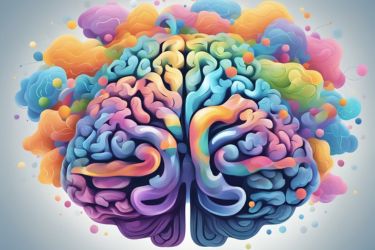In today's fast-paced work environment, our ability to work well with others is crucial for success. Developing emotional intelligence within teams can significantly enhance collaboration and improve overall team performance. By fostering self-awareness and empathy, we can create a workplace where effective communication and strong relationships lead to better outcomes.

We often overlook how our emotions and behaviours affect our colleagues. Understanding our emotional triggers allows us to navigate challenges more smoothly, helping us resolve conflicts and make informed decisions. When we prioritise emotional intelligence, we not only support each other but also boost our collective productivity and creativity.
As we explore this important topic, we will discuss practical strategies for cultivating emotional intelligence among team members. Embracing these skills will lead to stronger collaboration and ultimately a more effective team.
Understanding Emotional Intelligence

Emotional intelligence (EI) plays a crucial role in team dynamics and collaboration. It involves recognising our emotions and managing them effectively, as well as understanding others' feelings. This section will highlight what EI is, its main components, and its significance in the workplace.
Defining Emotional Intelligence (EI)
Emotional intelligence is the ability to identify, understand, and manage our own emotions while also recognising and influencing the emotions of others. It is often referred to as EQ, or emotional quotient. Unlike traditional intelligence, which is measured by IQ, EI focuses on interpersonal skills that enhance teamwork and communication.
High EI can lead to better relationships among team members, helping us navigate conflicts more effectively. This understanding creates a more supportive work environment, which can lead to increased collaboration and productivity.
Components of EI: Self-Awareness and Self-Regulation
Two key components of emotional intelligence are self-awareness and self-regulation.
Self-Awareness: This is the ability to recognise our own emotions and how they affect our thoughts and behaviours. When we are self-aware, we can better understand our strengths and weaknesses. This understanding allows us to respond thoughtfully in challenging situations rather than reacting impulsively.
Self-Regulation: This involves managing our emotions in a way that is appropriate and constructive. It allows us to stay calm under pressure and think clearly during stressful moments. By practising self-regulation, we can contribute positively to team dynamics, enhancing collaboration and reducing negative interactions.
Importance of EI in the Workplace
Emotional intelligence is vital for creating a successful work environment. Teams with high EI tend to experience greater job satisfaction and lower turnover rates.
When we prioritise EI, we foster better communication, leading to more effective teamwork. Improved understanding of emotions helps us manage differences of opinion, reducing conflicts. This collaborative spirit can boost creativity and innovation, as team members feel comfortable sharing their ideas.
In summary, developing emotional intelligence enhances our ability to work together effectively and improve our overall workplace culture.
Cultivating a Collaborative Team Environment

Creating a collaborative team environment is essential for fostering effective teamwork. We can achieve this by focusing on trust, open communication, and engaging team-building activities. Each aspect plays a crucial role in ensuring that our team works well together and feels supported.
Building Trust and Psychological Safety
Trust is the foundation of a collaborative environment. We must promote psychological safety, where team members feel secure in sharing their thoughts without fear of judgement. This can be fostered by encouraging honest feedback and showing that we value every person's input.
Creating this atmosphere involves acknowledging mistakes without blame. When we embrace failures as opportunities for growth, trust increases. A team that supports each other's ideas will naturally collaborate more effectively.
Promoting Open Communication and Empathy
Effective communication is vital for collaboration. We should encourage team members to express their opinions clearly while also listening actively to others. This two-way communication fosters a sense of belonging and respect within the team.
Empathy plays a key role in this process. By understanding our colleagues' perspectives and feelings, we create stronger connections. We can encourage empathy by sharing personal experiences or engaging in discussions about how certain actions may affect others. This openness leads to enhanced cooperation.
Incorporating Team Building Activities
Engaging in team-building activities can greatly enhance collaboration. These activities are designed to strengthen relationships and improve communication among team members. They can range from simple icebreakers to more complex problem-solving tasks.
We should choose activities that encourage teamwork and require cooperation. For example, group challenges or collaborative games can help break down barriers between team members. These experiences not only build skills but also deepen our understanding of each other, ultimately fostering a supportive environment for collaboration.
Developing Skills for Better Team Collaboration

To enhance our team collaboration, we must focus on developing specific skills: social skills and cultural sensitivity, effective conflict resolution, and sound decision-making. These areas are crucial for creating a cohesive team that works well together towards our common goals.
Enhancing Social Skills and Cultural Sensitivity
We can improve team dynamics by enhancing our social skills. This involves active listening, where we fully focus on what others are saying. It helps us respond appropriately and build trust among team members.
Cultural sensitivity is equally important. Each team member may come from different backgrounds, influencing their perspectives and behaviour. By respecting and valuing these differences, we can foster an inclusive environment where everyone feels comfortable sharing ideas. Understanding cultural cues can also help prevent misunderstandings and strengthen our collaboration.
Conflict Resolution and Management
Conflicts are natural in any team, but how we handle them determines our success. We should develop clear strategies for conflict resolution. First, we can promote open communication, encouraging team members to voice their concerns respectfully.
Active listening plays a key role here as well. By acknowledging the issues at hand, we show we value each other's opinions. It is vital to approach conflicts without judgement. We can facilitate discussions to identify solutions that satisfy all parties involved.
Implementing conflict management training can also be beneficial. This training teaches us techniques to manage disputes effectively, helping maintain a positive team dynamic.
Decision-Making and Leadership
Good decision-making is essential for team effectiveness. We should encourage collaborative decision-making processes where every team member can contribute their ideas. This not only leads to better solutions but also makes everyone feel invested in the outcome.
Strong leadership is also crucial. Leaders must model the behaviour they wish to see in the team. This includes showing empathy and understanding during discussions. By leading with emotional intelligence, we create an atmosphere where team members feel safe to express their thoughts and concerns.
Regular feedback sessions can further enhance our decision-making skills. By reviewing past decisions, we can learn what worked, what didn’t, and how we can improve in the future. This continuous improvement drives our team towards achieving our goals effectively.
Strategies to Improve Team EI and Collaboration

Improving emotional intelligence within our teams can lead to better collaboration and higher productivity. By engaging in specific practices, we can enhance our understanding of each other's feelings and perspectives. The following strategies can help us strengthen our team’s emotional intelligence.
Role-Playing and Empathy Exercises
Role-playing is a powerful method for developing empathy within teams. By stepping into each other's shoes, we can gain insights into diverse viewpoints. For example, we can set up scenarios that mimic real workplace challenges.
During these exercises, we focus on active listening and responding appropriately. This builds trust and understanding among team members. Additionally, we can encourage open discussions afterwards. Reflecting on our feelings during these activities enhances our emotional awareness.
Integrating regular empathy exercises into our team meetings can lead to more supportive dynamics. This practice not only improves our interactions but also boosts our overall collaboration.
Mindfulness and Stress Management
Mindfulness techniques are essential for managing stress and improving focus at work. Practising mindfulness can help us stay present and better regulate our emotions. We can introduce short mindfulness sessions before meetings to set a positive tone.
In addition, we should create an environment that encourages stress management. This may include providing resources for meditation or relaxation exercises. We could also promote journaling as a tool for personal growth. Keeping track of our thoughts and feelings helps us process emotions effectively.
When we manage stress well, we reduce the risk of burnout. This helps maintain a healthier workplace where everyone feels engaged and valued.
Action Plans for Personal and Team Development
Creating action plans is crucial for our ongoing development in emotional intelligence. We can start by identifying specific areas for improvement for each team member.
These action plans should include clear goals, such as enhancing active listening skills or improving communication. Regular check-ins on our progress can help keep us accountable. We should encourage feedback from peers to facilitate personal growth.
Incorporating team-building activities into our plans can also strengthen our relationships. Employees who feel supported are more engaged and committed to their tasks. By developing tailored action plans, we enhance not only individual EI but also our overall business performance.
Measuring the Impact of EI on Team Performance
Emotional intelligence (EI) significantly influences various aspects of team performance. By measuring these impacts, we can see how EI contributes to productivity, innovation, and employee satisfaction.
Productivity and Efficiency Metrics
We can assess the impact of EI on productivity through several key metrics. Studies show that teams with high emotional intelligence typically achieve a 20% increase in productivity compared to their peers.
- Task Completion Rates: Teams with emotionally intelligent members often complete projects more efficiently.
- Quality of Work: High EI correlates with fewer errors and higher quality output.
These improvements lead to better business performance, reflecting how essential EI is in driving team success. When team members collaborate effectively with empathy and understanding, it results in smoother workflows and accomplished goals.
Innovation and Creativity Outcomes
Emotional intelligence not only enhances productivity but also fosters creativity and innovation. Teams that communicate openly and manage emotions well are more likely to brainstorm and implement innovative ideas.
- Brainstorming Sessions: High EI teams generate more creative solutions.
- Problem-Solving Capabilities: They tackle challenges with diverse perspectives, which often leads to unique outcomes.
A positive work environment nurtured by emotional understanding allows for free-flowing communication and collaboration. Consequently, this leads to a higher rate of successful project launches and innovative strategies.
Employee Engagement and Job Satisfaction Assessment
Measuring the impact of EI on employee engagement is crucial. High emotional intelligence promotes a motivating atmosphere, which increases job satisfaction levels.
- Engagement Surveys: Teams with strong EI report higher engagement scores, reflecting a committed workforce.
- Job Satisfaction Ratings: Employees often feel more fulfilled and valued in emotionally intelligent environments.
When team members feel understood and respected, they are not only more engaged but also more likely to contribute positively. This connection underlines the importance of EI in fostering a healthy, high-performing team culture.





















